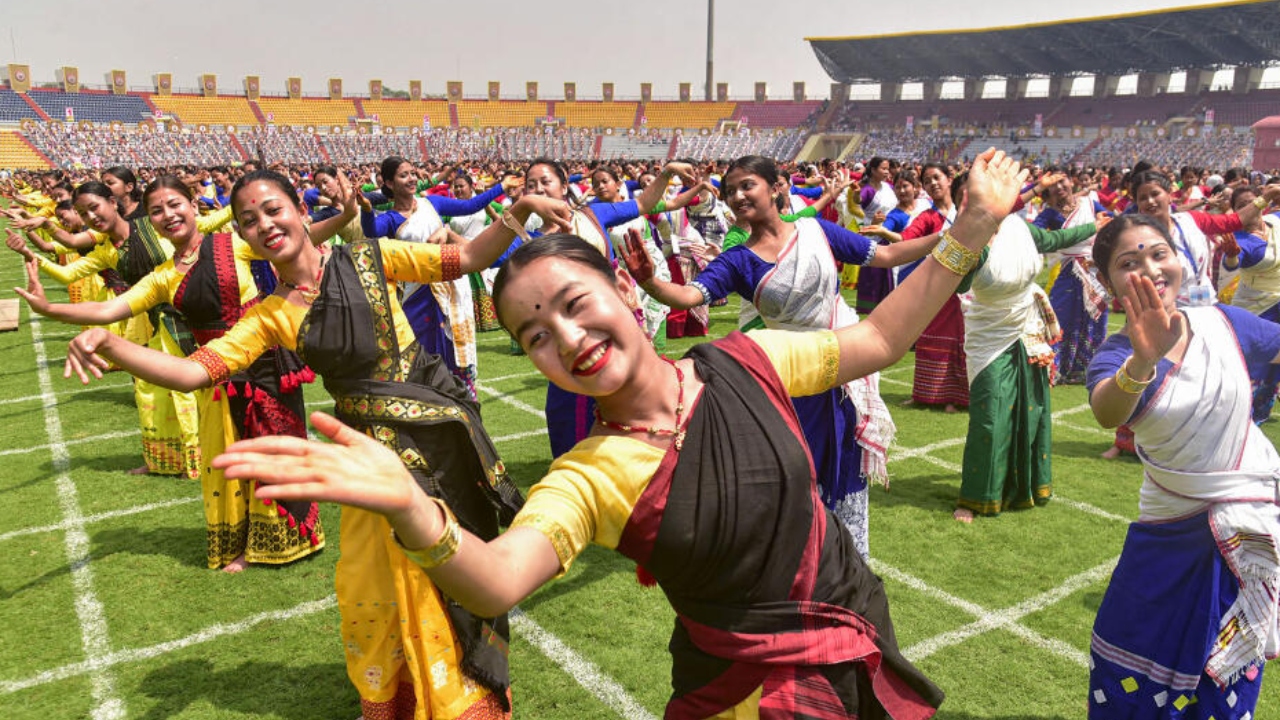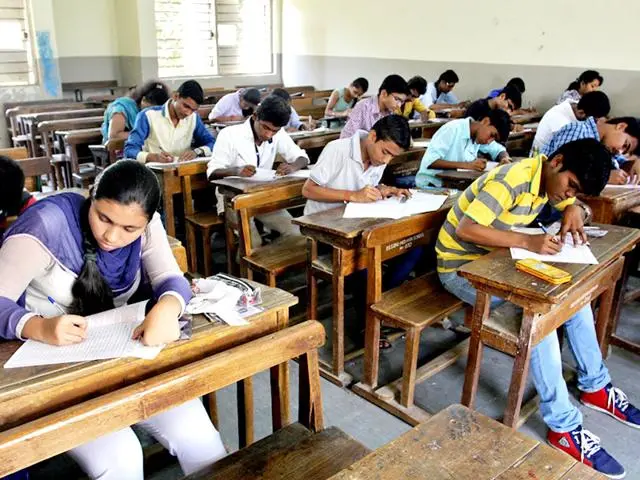Rongali Bihu, also known as Bohag Bihu, is a festival celebrated in the state of Assam in northeastern India. It is the most important festival of the Assamese people and marks the beginning of the Assamese New Year, which falls in mid-April, usually around April 14-15.
Rongali Bihu holds a great cultural and social significance for the people of Assam. It is a time when families and friends come together to celebrate and participate in various cultural activities, including traditional dances, music, and games. The festival is also an occasion for feasting and enjoying traditional Assamese delicacies such as pitha, laru, and doi.
Bohag Bihu Day Names –
Bohag Bihu or Rongali Bihu is celebrated for 7 days and each day has its own significance and rituals. The seven days of Bihu are as follows:
- Goru Bihu (গৰু বিহু) – The first day of “Bohag” (Rongali Bihu) Bihu is called “Goru Bihu”. On this day, the household cattle are taken to the nearby river or streams, “jaan”, “juri”, pond or any fresh and pure water body and bathed with a paste of “halodhi”, “maah” and “kesa aam” and people pray for the well-being and safety of their livestock. However, a few rituals slightly differ from place to place within the state.
- Manuh Bihu (মানুহ বিহু)- The second day of this Bihu is called called ‘Manuh Bihu’ people take a bath with the same paste (freshly prepared) as mentioned above. Also, in some places people use the paste prepared on the day of Goru bihu which is remained after being applied on the domestic animals. Various rice cakes called “pitha”’s and laddus called “laru” are taken by every household. Bihu functions are held at different localities and people visit neighbours and relatives to greet each other and pay their respect to the elders in the family by presenting them with a new “Gamusa”. People wear new clothes on this day. Bihu functions are held thoughout the month of Bohag.
- Gosain Bihu গোসাঁই বিহু) – This day is dedicated to the priests or Gosains. People offer prayers and seek blessings from the Gosains.
- Kutum Bihu or Hat Bihu(কুটুম বিহু) – This day is dedicated to families. People visit their relatives and exchange gifts and greetings.
- Senehi Bihu or Jiyari Bihu(চেনেহী বিহু বা জীয়ৰী বিহু) – On this day, the daughters (jiyoris) come to their parents’ house to celebrate Bihu. That’s why its called Jiyori bihu. Again Senehi Bihu is a day that symbolizes love. On this day, youths meet their beloved and give them gifts usually known as “Bihuwan” and thus it is also called Senehi Bihu. However, some celebrate this day as “Nangolor Bihu”, meant for the “Nangol”, one of the main agricultural equipments.
- Mela Bihu (মেলা বিহু) – This day is similar to Senehi Bihu, but it is celebrated on a larger scale. People participate in community fairs and enjoy various cultural programs.
- Chera Bihu or Bohagi Bidai (চেৰা বিহু) – The seventh and the last day is called “Sera Bihu”. On this day, the kings in ancient times used to participate in a fair along with his subjects. This practice is observed even till this date and fairs are organized in different part of the states, where people come and participate in large numbers.
Please note that the above names or even particular occasions may differ from place to place within the state.
Rongali Bihu has several significant aspects. It is a time of renewal, as the festival marks the beginning of the Assamese New Year. It is also a time of thanksgiving, as people express gratitude to the gods and goddesses for their blessings and pray for a bountiful harvest.


